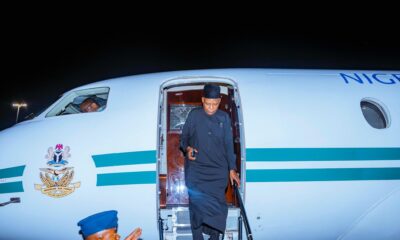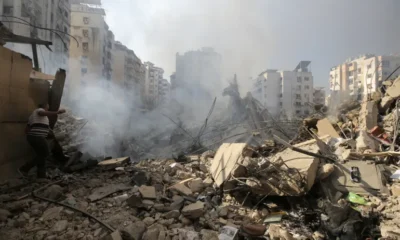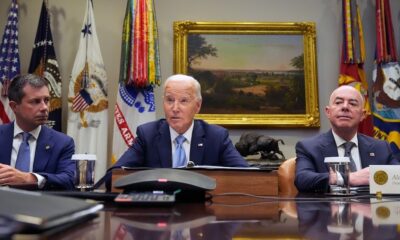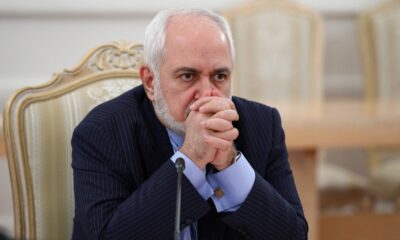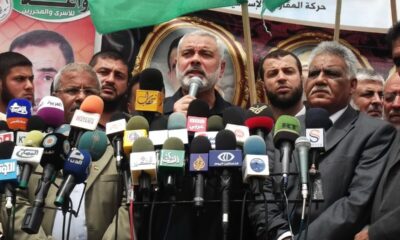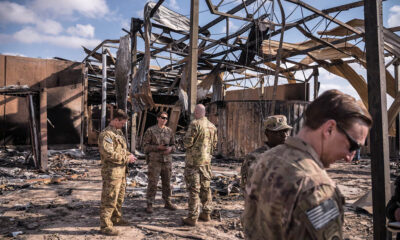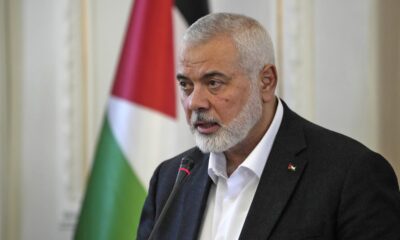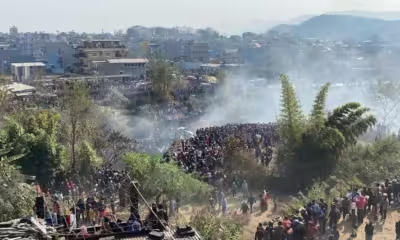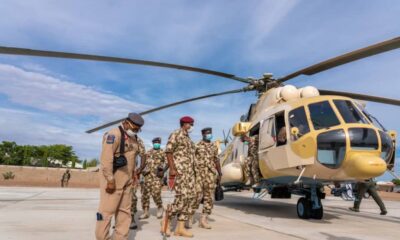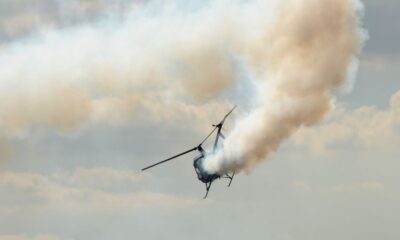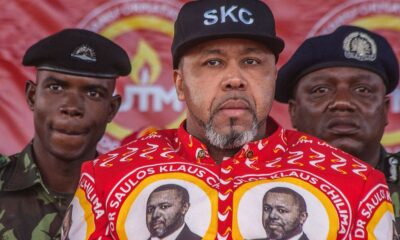World
Iran President Raisi confirmed dead in helicopter crash
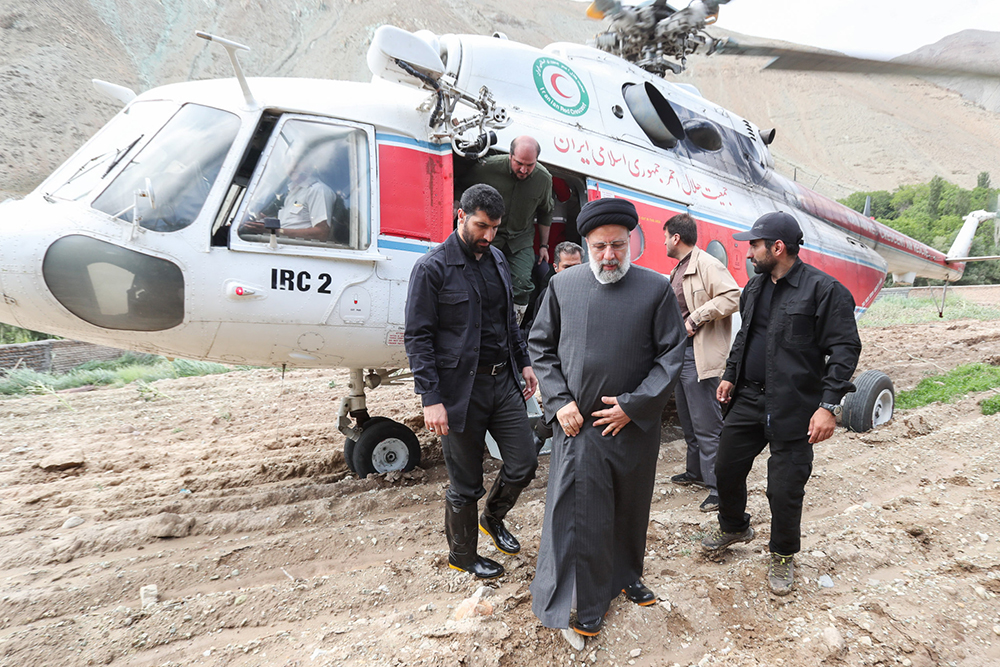
Iran‘s President Ebrahim Raisi and Foreign Minister Hossein Amir-Abdollahian were confirmed dead after rescuers reached the crash site of their helicopter.
The discovery came after a long night of searching in freezing conditions.
Raisi’s helicopter was completely burned in the crash, and the situation was described as “not good” by Iranian Red Crescent Society head Pir-Hossein Kolivand.
The Raisi helicopter crash incident marks a significant loss for Iran, impacting both its leadership and political landscape.
Raisi’s death comes amid his efforts to address Iran’s numerous challenges, including economic turmoil, international sanctions, and regional tensions.
Early Life and Religious Background
Ebrahim Raisi was born on December 14, 1960, in Mashhad, one of Iran’s holiest cities, which most likely contributed to his intensely religious upbringing.
His father was a priest, and Raisi followed in his footsteps by studying Islamic jurisprudence.
He attended the famed Qom Seminary, where he studied with some of Iran’s most prominent clerics, including Ayatollah Khamenei, Iran’s current Supreme Leader.
This education gave Raisi a solid basis in Shia Islamic theology and jurisprudence, which would be useful in his judicial and political careers.
Rise in the Judicial System
Raisi’s career in the judiciary began in earnest during the early years of the Islamic Republic.
At a young age, he was appointed as a prosecutor in Karaj and later in Hamedan. By the mid-1980s, Raisi had become the Deputy Prosecutor of Tehran, one of the most significant judicial positions in the country.
His tenure in the judiciary has been controversial, particularly due to his involvement in the 1988 mass executions of political prisoners, an event that remains a point of contention both domestically and internationally.
Raisi’s role in these executions has earned him a reputation as a hardliner and has attracted significant human rights criticism.
Judicial and Political Career
Over the decades, Raisi held various important judicial roles, including serving as the Attorney General of Iran from 2014 to 2016.
In this role, he focused on anti-corruption efforts, aligning himself with the Principlist faction, which advocated for the preservation of the Islamic Revolution’s principles.
His appointment as the Chief Justice of Iran in 2019 by Ayatollah Khamenei further solidified his standing within the conservative establishment.
As Chief Justice, Raisi continued his anti-corruption campaign and sought to reform the judiciary, although his tenure was also marked by stringent measures against political dissent.
Presidential Campaigns
Raisi initially campaigned for president in 2017, challenging the more moderate incumbent, Hassan Rouhani. Raisi was defeated, despite having considerable support from conservative groupings.
However, the 2017 campaign raised his national reputation and laid the groundwork for his successful 2021 presidential attempt.
The 2021 election was held amid substantial economic turmoil, owing partly to the re-imposition of US sanctions following the Trump administration’s exit from the Iran nuclear deal (JCPOA).
Low voter turnout and broad dissatisfaction with the existing quo aided Raisi, who promised economic reforms, a crackdown on corruption, and the continuance of Iran’s tough position on its nuclear program.
Presidency and Policies
Since taking office in August 2021, President Raisi has encountered significant problems, including a faltering economy, foreign sanctions, and regional unrest.
His administration has focused on increasing domestic output, lowering unemployment, and combatting inflation.
Raisi has also promised to combat corruption, which aligns with his judicial expertise.
On the international front, Raisi has taken a harsh stance on the nuclear issue, arguing that Iran’s nuclear program is for peaceful reasons and seeking the relaxation of all sanctions as a prerequisite for returning to the JCPOA talks.
Raisi’s presidency has been marked by a desire to strike a compromise between economic reforms and a firm commitment to the Islamic Republic’s intellectual ideals.
This means maintaining close connections with regional allies such as Syria and Hezbollah, as well as handling complicated relations with larger countries like Russia and China.
Human Rights and International Perception
Raisi’s human rights record remains a major worry for many international observers.
His involvement in the 1988 executions, as well as his term as a judge, have been linked to claims of human rights violations, including the suppression of political dissidents and minority groups.
These concerns have damaged Iran’s relations with Western countries, resulting in sanctions against him personally.
Ebrahim Raisi’s ascent to the presidency of Iran illustrates the long-standing dominance of conservative and hardline elements in the country’s political scene.
His judicial training, together with his adherence to the ideas of the Islamic Revolution, influenced his approach to governing.
His premature death in a helicopter crash, alongside Foreign Minister Hossein Amir-Abdollahian, is a devastating loss for the country.
As Iran embarks on this new chapter, the country will be widely monitored for how it commemorates Raisi’s legacy and solves the lingering issues he wanted to address throughout his tenure.

